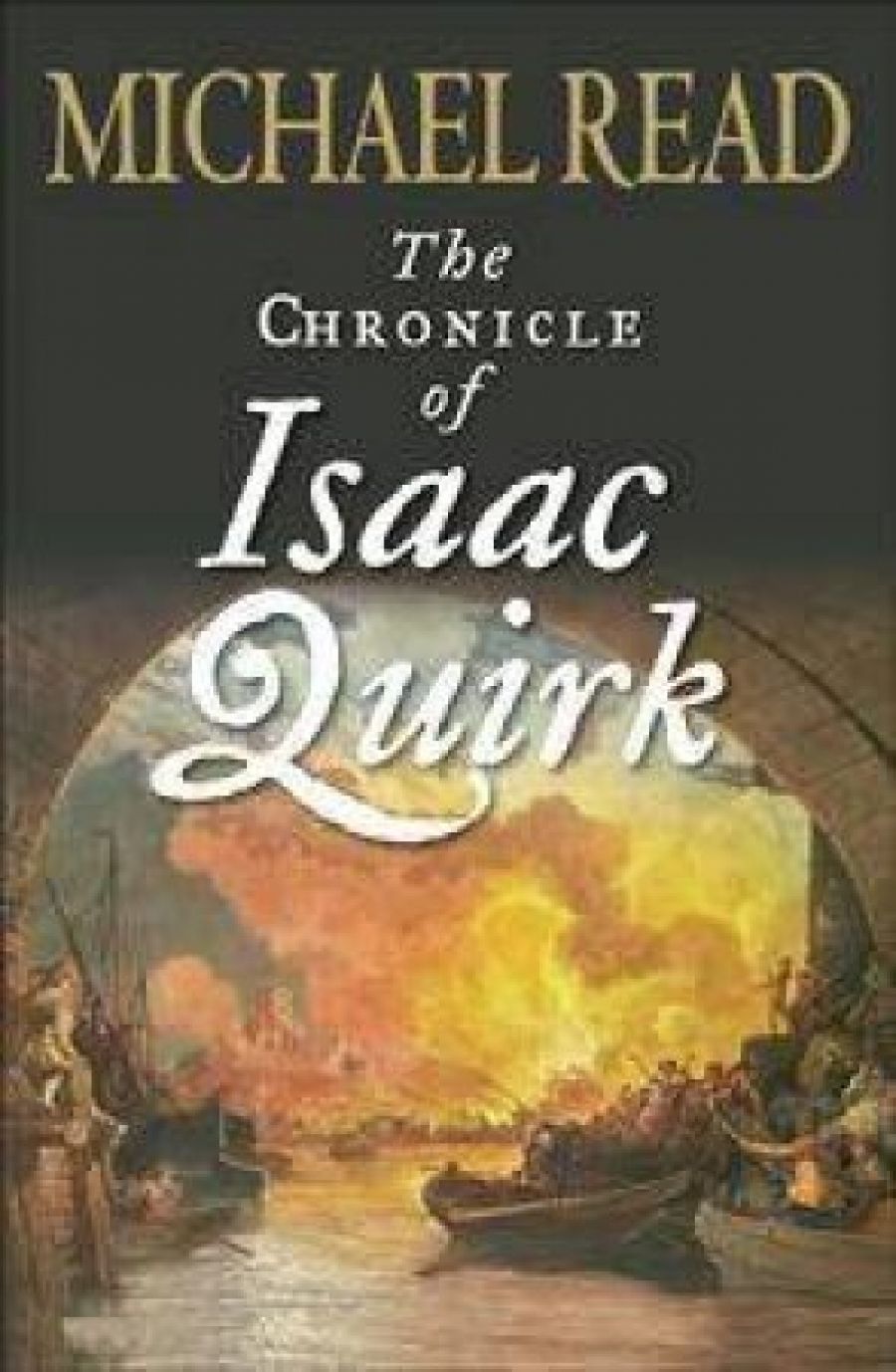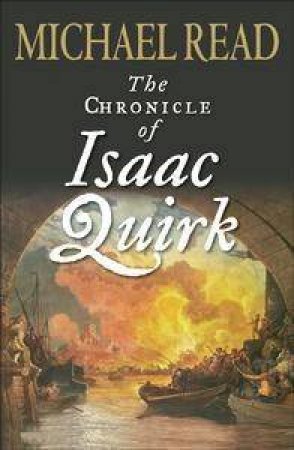
- Free Article: No
- Contents Category: Fiction
- Review Article: Yes
- Article Title: Frissions of Exotica
- Online Only: No
- Custom Highlight Text:
For those of us drawn to tell the stories of the past, seventeenth-century England has a great deal to recommend it. It is distant enough to offer the frissons of historical exotica, yet so close that the minds of the time are recognisable to us. In addition, it is hard to think of a period in one country so packed with incident. Where else, in a single lifespan, can a novelist convincingly have his character experience wars – both foreign and domestic – fire, pestilence, regicide and Restoration?
- Book 1 Title: The Chronicle of Isaac Quirk
- Book 1 Biblio: Text, $30 pb, 437 pp
- Book 1 Cover Small (400 x 600):

- Book 1 Cover (800 x 1200):

Michael Read’s accomplished first novel, The Chronicle of Isaac Quirk, opens in rural England 1632 and closes in Bristol 1666, with the smoke of the Great Fire still rising over London. Read makes a meal of the period’s riches. He does not pick at the buffet of goodies available; he devours them all. In The Chronicle, there will be Civil War, naval engagement with the Dutch, fire and plague. (There will not, however, be any sex: Isaac Quirk is no Samuel Pepys. Read’s narrator keeps his chamber door securely closed.)
It may seem odd, therefore, that my quibble with The Chronicle of Isaac Quirk is a dearth of plot. Incident piled upon incident is not the same thing. The Chronicle has plenty of incident, to be sure: well researched and often beautifully described. The intricacies of these set pieces – Quirk’s apprenticeship as a barber-surgeon, his time aboard ship as a pressed man, his adventures in private practice in the poor quarter of London around Shoe Lane – are more than enough to propel the reader happily through its pages. Plot is another matter. The essential equation of plot – this, plus this, must inexorably produce that – is missing from the central action of the book. The fulcrum on which The Chronicle is meant to turn is Quirk’s theft of some secret Dutch documents. This one act, Read wants us to believe, shapes Quirk’s life, eventually making of him an unwilling spy both for and against his own country. But compared to the loving detail lavished upon his acquisition of surgical skills, the vivid descriptions of shipboard gunnery, and the fascinating arcana of London guild life, the business with the papers is sketchy and unsatisfying. Why Quirk takes them, why he keeps them, why he gives them away: all of these decisions are resolved for threadbare reasons and the mystery of what the papers were and why they matter is never fully answered. Sometimes, the whole spying business seems little more than a rack upon which to hang some interesting detail about the workings of Whitehall and the technique of writing coded messages in musical notation.
A word of warning: Read’s love of detail can demand of the reader a high tolerance for gory description. This, for instance, on treating a bubonic plague victim: ‘Taking my best and sharpest lancet, I quickly ran the tip of the blade across the bubo, and opened it wide by a quick cut across. Bloody fluid and muck ran out onto the cloth as I cut away the head of the bubo and, taking a curved scraper, dug into it.’
At its best, The Chronicle of Isaac Quirk calls to mind another first-person narrative set in the same period, Ferdinand Mount s estimable novel Jem (and Sam) (1999). That book had a witty central premise at its heart: Jem, the narrator, lives in the shadow of Sam (Pepys) and is his unsuccessful rival in work, love and, finally, as a diarist. Read is not poking even gentle fun at his narrator: there is no levity here. But what Read shares with Mount is a fascination with the quotidian, unglamorous details of seventeenth-century life and an ability to write about them convincingly. I must admit to a moment of anxiety when, in the early chapters, a ‘buxom wench’ made a couple of appearances. Are there two more dispiriting words in the lexicon of historical fiction? Luckily, she is a fleeting aberration. The wench stays put at the local tavern and Quirk goes on to greater and less cliché-ridden things.


Comments powered by CComment